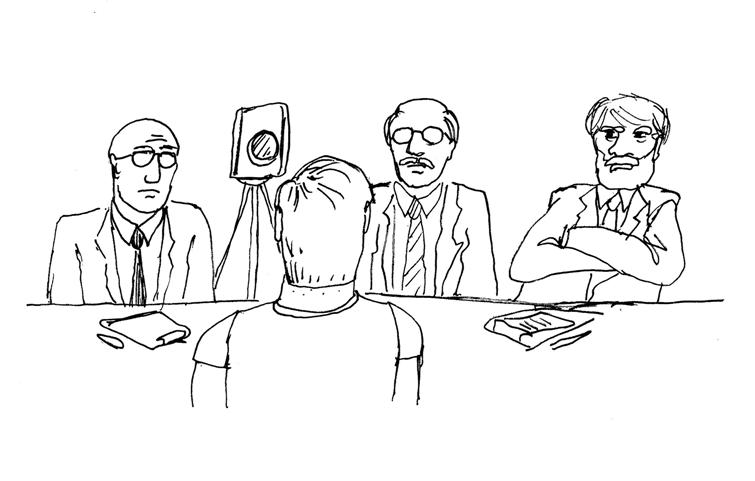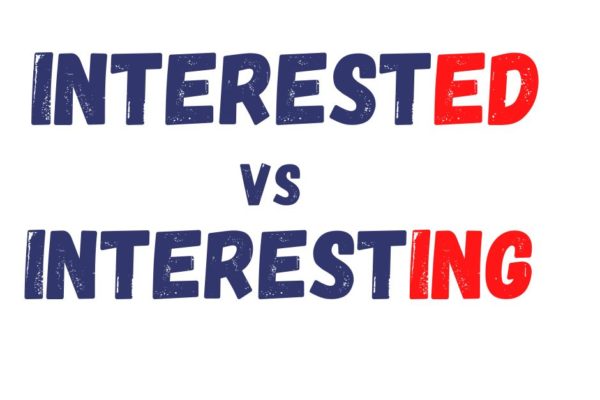As you probably already know TED Talks are a great way to improve any of your English skills: vocabulary, listening, pronunciation and reading.
In this post, I collected some useful words and expressions from the TED Talk of psychologist Kelly McGonigal about our stress response.
Recommendation:
Watch (or read) the TED Talk and see what words you don’t know, and then check out them here. After it, watch the video again paying attention to parts with these words.
Then choose expressions you want to add to your active vocabulary, create your own sentences with them and start using them in your speech.
I chose words that I didn’t know or that seem useful/interesting to me. You can choose any of these words to add to your active vocabulary. The main idea is not to learn all words but those that YOU are going to use!
Vocabulary:
1. prematurely (adv) /ˌpriː.məˈtʊr.li/ – in a way that happens or is done too soon, especially before the natural or suitable time
“… 182,000 Americans died prematurely, not from stress, but from the belief that stress is bad for you.”
2. stress-induced (adj) – caused by stress or mental fatigue.
“.. this one biological change could be the difference between a stress-induced heart attack at age 50 and living well into your 90s.”
“oxytocin helps heart cells regenerate and heal from any stress-induced damage”
3. social stress test – is a laboratory procedure used to reliably induce stress in human research participants.
“.. I want you all to pretend that you are participants in a study designed to stress you out. It’s called the social stress test. You come into the laboratory, and you’re told you have to give a five-minute impromptu speech on your personal weaknesses to a panel of expert evaluators sitting right in front of you, and to make sure you feel the pressure.”

4. demoralized (adj) /dɪˈmɔːr.ə.laɪzd/ – having lost your confidence, enthusiasm, and hope.
“Now that you’re sufficiently demoralized, time for part two: a math test.”
5. to harass (v) /həˈræs/ – to annoy or trouble someone repeatedly. harassment /ˈharəsm(ə)nt,həˈrasm(ə)nt/ aggressive pressure or intimidation.
“And unbeknownst to you, the experimenter has been trained to harass you during it.”
6. to pound (v) /paʊnd/ – strike or hit heavily and repeatedly
“Your heart might be pounding, you might be breathing faster, maybe breaking out into a sweat”.
7. cardiovascular disease /ˌkɑrdioʊˈvæskjələr dɪˈziz/ – a general term for conditions affecting the heart or blood vessels.
For years I’ve been telling people, stress makes you sick. It increases the risk of everything from the common cold to cardiovascular disease.
And this is one of the reasons that chronic stress is sometimes associated with cardiovascular disease.
8. to redeem ( v) /rɪˈdiːm/ – to compensate for the faults or bad aspects of
“Now I said I have over a decade of demonizing stress to redeem myself from.”
9. oxytocin ( n) /ˌɑːk.sɪˈtoʊ.sɪn/ – is a hormone that acts on organs in the body (including the breast and uterus) and as a chemical messenger in the brain, controlling key aspects of the reproductive system, including childbirth and lactation, and aspects of human behaviour.
10. to fine-tune (v) /ˌfaɪnˈtuːn/ – to adjust precisely so as to bring to the highest level of performance or effectiveness.
Oxytocin is a neuro-hormone. It fine-tunes your brain’s social instincts.
11. to enhance (v) – to improve the quality, amount, or value of something.
“It enhances your empathy.”
“And the cool thing is that all of these physical benefits of oxytocin are enhanced by social contact and social support.”
12. pituitary gland – the major endocrine gland, a pea-sized body attached to the base of the brain that is important in controlling growth and development and the functioning of the other endocrine glands.
“Your pituitary gland pumps this stuff out as part of the stress response.”
13. to nudge – to encourage or persuade someone to do something in a way that is gentle rather than forceful or direct.
14. to bottle up – to keep (a feeling or emotion) inside instead of expressing it : to hide (a feeling or emotion)
“Your biological stress response is nudging you to tell someone how you feel, instead of bottling it up.”
15. Stress resilience – the process of adapting well in the face of adversity, trauma, tragedy, threats, or significant sources of stress—such as family and relationship problems, serious health problems, or workplace and financial stressors.
“I find this amazing, that your stress response has a built-in mechanism for stress resilience, and that mechanism is human connection.”
“And when you choose to connect with others under stress, you can create resilience. “
“Caring created resilience”.

SOME COLLOCATIONS with the context:
| Collocation | Context from TED talk |
| to make a confession | I have a confession to make. But first, I want you to make a little confession to me. |
| do more harm than good | But I fear that something I’ve been teaching for the last 10 years is doing more harm than good. |
| to change your mind about smth | But I have changed my mind about stress, and today, I want to change yours. When you change your mind about stress, you can change your body’s response to stress. |
| to experience stress | How much stress have you experienced in the last year? How you think and how you act can transform your experience of stress. |
| to spend energy | Here I’ve been spending so much energy telling people stress is bad for your health. |
| personal weaknesses | You come into the laboratory, and you’re told you have to give a five-minute impromptu speech on your personal weaknesses to a panel of expert evaluators sitting right in front of you. |
| to feel the pressure | and to make sure you feel the pressure, there are bright lights and a camera in your face, kind of like this. |
| to give feedback/to ask for some feedback | And the evaluators have been trained to give you discouraging, non-verbal feedback. |
| heart pounds (additional resource) | Your heart might be pounding, you might be breathing faster, maybe breaking out into a sweat. |
| to cope with the pressure | And normally, we interpret these physical changes as anxiety or signs that we aren’t coping very well with the pressure. |
| to meet the challenge (additional resource) | But what if you viewed them instead as signs that your body was energized, was preparing you to meet this challenge? |
| to rise to the challenge (additional resource) | because hopefully the next time your heart is pounding from stress, you’re going to remember this talk and you’re going to think to yourself, this is my body helping me rise to this challenge. |
| to be less stressed out, less anxious | If you were actually in this study, you’d probably be a little stressed out. |
| heart rate | Now, in a typical stress response, your heart rate goes up, and your blood vessels constrict like this. |
| chronic stress | And this is one of the reasons that chronic stress is sometimes associated with cardiovascular disease. |
| stress-induced heart attack | Over a lifetime of stressful experiences, this one biological change could be the difference between a stress-induced heart attack at age 50 and living well into your 90s. |
| stress response | But in the study, when participants viewed their stress response as helpful, their blood vessels stayed relaxed like this. |
| to release hormones | So when you reach out to others under stress, either to seek support or to help someone else, you release more of this hormone. |
| to recover from stress | And you actually recover faster from stress. |
| stress-related | People who spent time caring for others showed absolutely no stress-related increase in dying. |
| to be under stress | And when you choose to connect with others under stress, you can create resilience. |
| to turn stress into the enemy | Basically, I’ve turned stress into the enemy. |
That’s it. Let me know in the comments what words or expressions you like the most.



![21 Verbs With Prepositions For Intermediate Students [Learn Them With The Quiz] 21 Verbs With Prepositions For Intermediate Students [Learn Them With The Quiz]](https://about-english.com/wp-content/uploads/2023/03/verbs-with-prepositions-600x400.jpg)



My favorite expression from the list above is:
´to change your mind about smth´
The word /expression i like most is the bottle up and unbeknown(st) to sb..